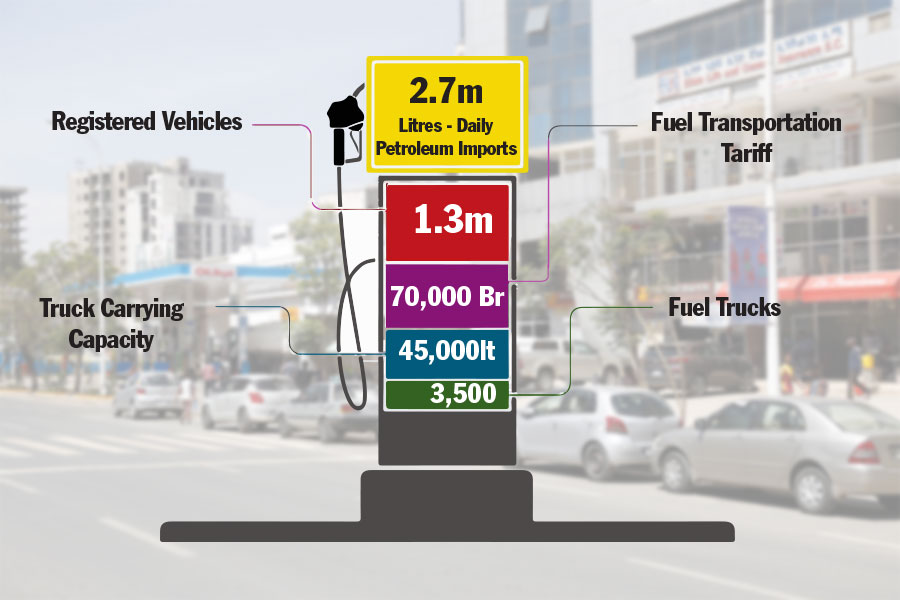
Radar | Jul 29,2023
Dec 19 , 2020
By Yeshiwas Fentahun
Unregulated industries remove costs to businesses as companies otherwise struggle to conduct their business in specific legal ways which often prove to be expensive. Ethiopian Airlines success thus even during the COVID-19 outbreak could be attributable to the lack of regulations it faces than just good leadership, writes Yeshiwas Fentahun (yeshiwasfz@yahoo.com), former chairperson at Ethiopian Airlines Group Basic Trade Union and former captain.
Across the globe, corporations lobby for political parties of their choice and donate millions for election campaigns they believe would favour their financial interests. CEOs know that without good regulations or a total lack of them in some situations, whatever they plan and execute may not fully translate into profits. They are right!
Most of the time regulations are costs to businesses as companies struggle to conduct their business in specific legal ways that often prove to be expensive. Unregulated industries, even if generally unfavored by customers, happen to be the most attractive to investors as they do not draw thin lines of conduct for their businesses. Ethiopian Airlines' industry has been no different, especially during the COVID-19 outbreak.
Indeed, the mere existence of written regulations does not necessarily result in high costs to industries if there is no capable entity to enforce the full force of the law. For years, the government body that controls the aviation industry in Ethiopia, the Civil Aviation Authority, has been a toothless lion that has been dwarfed by the huge expansion of Ethiopian Airlines, as well as its lack of capacity in diverse ways. The pseudo-existence of the Authority has paved the way for unregulated operations by Ethiopian, which helped it cut costs that would otherwise be impossible with a strong and capable regulator.
One of the main cost segments for airlines in developed nations has always been labour. Cheap labour, in conjunction with almost unregulated flight hours by crew members, has impelled Ethiopian beyond mere profitability. By lacking capacity, the Authority has acted as an enabler to the management of Ethiopian to dictate its regulation. When regulatory documents drafted by the Authority and approved by the Council of Ministers look like copies of internal Ethiopian Airlines policies, it is by no accident.
The Authority does not have the necessary staff and qualifications to carry out quality safety and other audits on an airline as big as Ethiopian. The Authority’s team of retired aviation experts with little or no experience with civil airline operations are no match for the complicated modern day aviation industry. But it is not entirely the Authority’s fault.
Ethiopian Airlines has always been viewed as the only “port” that the nation proudly owns and rightly so. This view has prevented deep scrutiny of the industry and hindered possible progress in the capacity building of the Authority. Implementation of regulations could have been spread across the years to avoid any significant impact on Ethiopian Airlines’ profitability if there was a consensus on the need for it. There is a need to see the long-run benefits that would result from proper regulation of the state enterprise by forcing it to come with efficient practices and develop its competitiveness instead of heavily relying on unregulated practices.
Even though the general regulatory landscape in Ethiopia had always favoured the national carrier, COVID-19’s impact on the global aviation industry has further bolstered the advantage of Ethiopian on the global market. For airlines across continents, COVID meant stricter regulations and entry restrictions, making flights nearly impossible. Flights which could never be operated under the existing legal frameworks by any airline sprung up in the market.
Demand for cargo flights from China to Africa soared with healthcare products to be used for the fight against the outbreak of the virus. At the same time, supply was almost unavailable due to regulatory hurdles that have always been in place for the sake of aviation safety.
“Around 40pc of annual global air cargo is typically transported in the bellyhold of passenger aircraft – contributing to the capacity pinch, with the vast majority currently grounded,” an article for the World Economic Forum read, explaining the supply crunch in cargo flights. “Freight movements are constrained by red tape.”
Developed nations’ urgent need to repatriate their citizens across continents presented further opportunities as their own national carriers refused to operate these flights out of safety concerns.
Ethiopian operated cargo flights between Africa and China despite a global pandemic that was raging at the time. Rightly so, given the nature of the pandemic and Ethiopia’s national interest, the Authority looked the other way while Ethiopian ran operations by its own rules. In short, Ethiopian was a scavenger, an operator willing to swipe leftovers of other carriers without the appropriate regard for safety regulations that have been in place for years.
Regulating the aviation industry in general and Ethiopian Airlines, in particular, should not be seen as anti-Ethiopian. Rather, anyone who cares for the continued existence of Ethiopian shall start working toward eliminating the age-old culture of non-compliance with regulations both set out by the Authority and the company itself.
Profitability should be considered as one of the goals rather than the only goal even at the expense of safe practices. Good leadership cannot be tested while Ethiopian is sailing across still waters with little or no regulatory hurdles - hurdles set out in the interest of aviation safety. Good leadership cannot be appraised while Ethiopian has enjoyed years of government support.
Ethiopian needs to take a proactive role in creating a culture of compliance and train itself the art of standing tall despite the burden of submitting itself to all operational requirements set forth in international agreements of civil aviation.
For a company which has always been pampered by the government, the learning curve will surely be a shallow one. It is in the end an enterprise that has been allowed to almost have an entire playing field to itself. But that is the only way the national carrier will develop its muscles without the heavy and unhealthy protection of the state.
PUBLISHED ON
Dec 19,2020 [ VOL
21 , NO
1077]


Radar | Jul 29,2023

Agenda | Jul 07,2024

In-Picture | Apr 13,2025

Sunday with Eden | Jun 15,2019

Commentaries | May 28,2022

Fortune News | Feb 12,2022

Editorial | Jun 17,2023

Fortune News | Nov 27,2021

Commentaries | Mar 25,2023


My Opinion | 131548 Views | Aug 14,2021

My Opinion | 127903 Views | Aug 21,2021

My Opinion | 125879 Views | Sep 10,2021

My Opinion | 123510 Views | Aug 07,2021

Dec 22 , 2024 . By TIZITA SHEWAFERAW
Charged with transforming colossal state-owned enterprises into modern and competitiv...

Aug 18 , 2024 . By AKSAH ITALO
Although predictable Yonas Zerihun's job in the ride-hailing service is not immune to...

Jul 28 , 2024 . By TIZITA SHEWAFERAW
Unhabitual, perhaps too many, Samuel Gebreyohannes, 38, used to occasionally enjoy a couple of beers at breakfast. However, he recently swit...

Jul 13 , 2024 . By AKSAH ITALO
Investors who rely on tractors, trucks, and field vehicles for commuting, transporting commodities, and f...

Jun 28 , 2025
Meseret Damtie, the assertive auditor general, has never been shy about naming names...

Jun 21 , 2025
A well-worn adage says, “Budget is not destiny, but it is direction.” Examining t...

Jun 14 , 2025
Yet again, the Horn of Africa is bracing for trouble. A region already frayed by wars...

Jun 7 , 2025
Few promises shine brighter in Addis Abeba than the pledge of a roof for every family...

Jun 29 , 2025
Addis Abeba's first rains have coincided with a sweeping rise in private school tuition, prompting the city's education...

Jun 29 , 2025 . By BEZAWIT HULUAGER
Central Bank Governor Mamo Mihretu claimed a bold reconfiguration of monetary policy...

Jun 29 , 2025 . By BEZAWIT HULUAGER
The federal government is betting on a sweeping overhaul of the driver licensing regi...

Jun 29 , 2025 . By NAHOM AYELE
Gadaa Bank has listed 1.2 million shares on the Ethiopian Securities Exchange (ESX),...